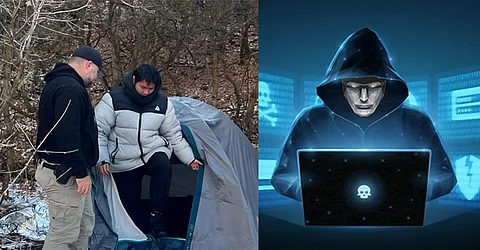

The case of Kai Zhuang, wherein the Chinese exchange student’s family was extorted for 80,000 USD has brought to light a disturbing trend. This new threat to cybersecurity has been termed Cyber Kidnapping. In this, people are led to believe through nefarious and intricate online means that a loved one or a family member has been kidnapped. The “kidnappers” then subsequently extort ransom money from the “victim’s” family who are then forced to pay in fear of their loved ones’ safety.
In the context of Zhuang, while studying in the US, his family was led to believe that Zhuang had been kidnapped whereas he was being tricked by the kidnappers to isolate himself through online means. The family was eventually tricked into paying the extortionate amount of ransom money believing their son to be kidnapped. Zhuang was eventually found in a tent in the snow capped rural Utah in a very “cold and scared” state. It was further revealed that the kidnappers had kept tabs on him through Facetime or Skype and tricked him into making it seem like he was being threatened even though the kidnappers were not present.
The investigating officers on this case provide some important preventions that can be undertaken to keep oneself safe from this. Typically, cyber kidnappings involve criminals calling or messaging a victim to trick them into thinking a loved one has been kidnapped, though the person is actually safe. The perpetrator can even use artificial intelligence to impersonate loved ones' voices and coerce their families into paying ransoms. Criminals can even spoof numbers to make them seem legitimate.
In case of receiving any such call or information, it is recommended to try and reach the “victim” to confirm their location. Families can also come up with specific catchphrases and codewords that the perpetrators might not be aware of. Law enforcement agencies and telecommunications companies can play a vital role in preventing the crimes in the future as well by making improvements in authenticating and tracing the source of these calls. While it remains unknown how many victims are out there, experts say that these small steps could help keep people safe.